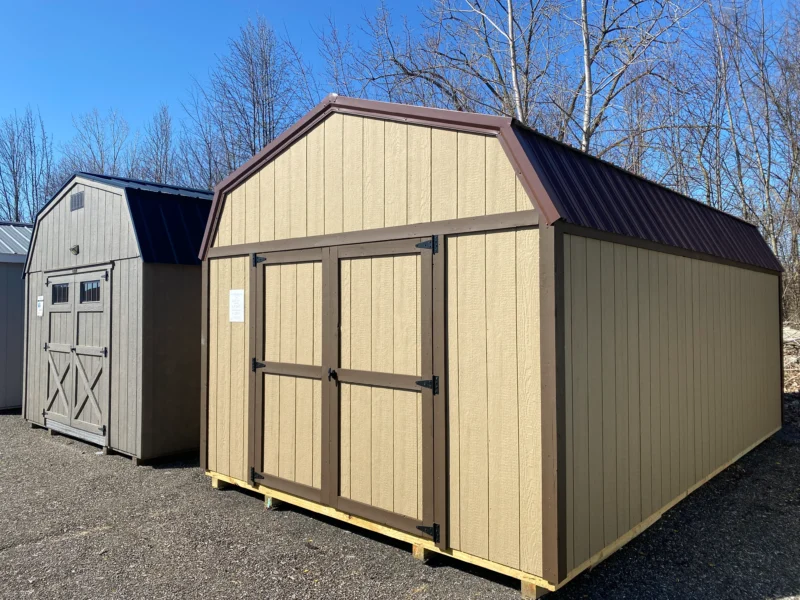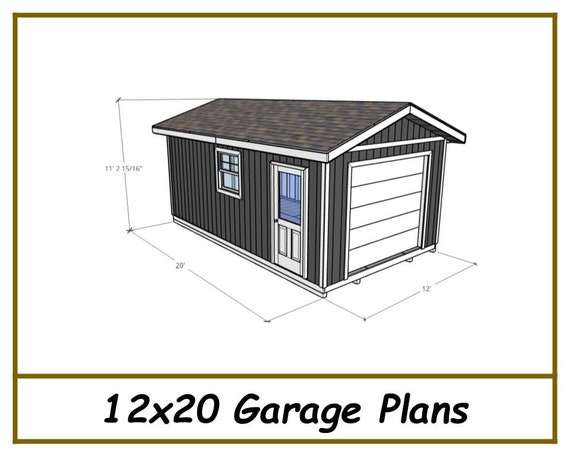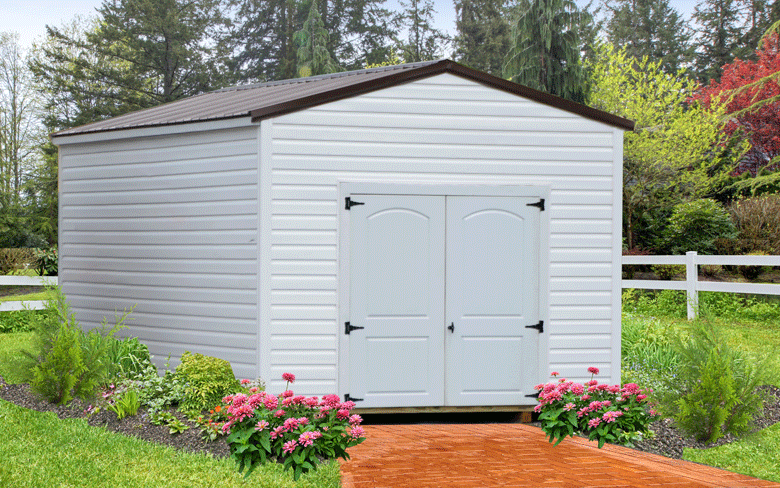The Ultimate Guide to 12x20 Garage Plans: Build Your Perfect Space
Are you dreaming of extra storage, a dedicated workshop, or a versatile hobby space? Look no further. Our comprehensive collection of 12x20 garage plans provides you with the detailed blueprints and inspiration needed to bring your vision to life. This isn't just about building a structure; it's about creating a functional and valuable addition to your property. Dive into the world of meticulously designed plans that prioritize efficiency, durability, and aesthetic integration with your existing landscape.
Why Choose 12x20 Garage Plans? The Perfect Balance of Size and Functionality
The 12x20 garage footprint strikes an ideal balance for a multitude of needs. It offers ample space without overwhelming your yard, making it a popular choice for homeowners seeking a versatile outbuilding. Consider these compelling reasons to opt for 12x20 garage plans:

- Optimal Storage Capacity: Provides significant storage for vehicles, lawn equipment, tools, seasonal decorations, and much more. Reclaim valuable space in your home.
- Workshop Potential: The dimensions are often perfect for setting up a dedicated workshop area. Imagine having a space for woodworking, auto repairs, crafting, or any other hobby.
- Manageable Construction: A 12x20 garage offers a project size that is often manageable for experienced DIYers while still providing substantial utility.
- Cost-Effective Solution: Compared to larger garage sizes, a 12x20 structure can be more budget-friendly in terms of materials and labor.
- Versatile Usage: Beyond storage and workshops, a 12x20 garage can be adapted for various purposes, such as a home office, a guest space (with proper insulation and finishing), or even a small business operation.
- Increased Property Value: A well-built and functional garage is a significant asset that can enhance the value and appeal of your property.


Key Considerations When Selecting Your 12x20 Garage Plans
Choosing the right 12x20 garage plans is a crucial first step. To ensure your project aligns perfectly with your needs and local regulations, consider the following factors:
- Intended Use: Clearly define how you plan to use the garage. Will it primarily be for vehicle storage, a workshop, or a combination of purposes? This will influence the layout and features you need.
- Local Building Codes and Permits: Thoroughly research and understand all local zoning regulations, building codes, and permit requirements before you begin. Your garage plans may need to adhere to specific guidelines regarding setbacks, height restrictions, and structural integrity.
- Foundation Type: Decide on the most suitable foundation for your 12x20 garage. Common options include concrete slabs, pier and beam foundations, and concrete footings with a gravel base. The choice will depend on soil conditions, local climate, and your budget.
- Framing Style: Explore different framing options, such as stick framing or post-frame construction. Each has its own advantages in terms of cost, ease of construction, and structural capabilities. Our 12x20 garage plans often detail specific framing methods.
- Roof Style: Consider the aesthetic appeal and functionality of different roof styles, such as gable, hip, or lean-to roofs. The roof pitch will also impact drainage and potential attic space.
- Door and Window Placement: Carefully plan the location and size of garage doors, entry doors, and windows to optimize access, natural light, and ventilation. Our detailed 12x20 garage plans will provide specific recommendations.
- Material Selection: Choose durable and cost-effective materials for siding, roofing, and trim that complement your home's exterior and withstand local weather conditions.
- Future Expansion: While you're focusing on a 12x20 garage now, consider if you might want to expand in the future. This could influence your foundation and wall construction choices.

Exploring Different Styles and Features in 12x20 Garage Plans
The beauty of 12x20 garage plans lies in their adaptability. You can find designs that cater to various aesthetic preferences and functional requirements. Here are some popular styles and features to consider:
- Standard Single-Car Garage: Designed primarily for parking one vehicle with some additional storage space.
- Workshop-Focused Plans: These plans often incorporate features like ample workbench space, designated tool storage areas, and strategic placement of electrical outlets.
- Multi-Purpose Designs: Offering a flexible layout that can accommodate both vehicle storage and a dedicated hobby or workspace.
- Carriage House Styles: Featuring traditional design elements like overhead doors with decorative hardware and often incorporating a loft or upper level for additional storage or living space potential.
- Modern and Contemporary Designs: Emphasizing clean lines, minimalist aesthetics, and innovative material choices.
- Lean-To Garage Plans: Ideal for situations where the garage will be attached to an existing structure, offering a cost-effective and space-saving solution.
- Plans with Loft or Attic Space: Maximizing storage capacity by incorporating an accessible upper level.
- Customizable Options: Many providers offer 12x20 garage plans that can be modified to suit your specific needs and preferences.
What to Expect from High-Quality 12x20 Garage Plans
Investing in well-designed 12x20 garage plans is crucial for a successful building project. High-quality blueprints should include:
- Detailed Floor Plans: Clearly illustrating the layout, dimensions of walls, doors, and windows.
- Elevation Drawings: Providing views of all sides of the garage, showcasing the exterior appearance and rooflines.
- Foundation Plans: Specifying the type of foundation, dimensions, and reinforcement details.
- Framing Plans: Detailing the wall framing, roof truss or rafter system, and structural support elements.
- Roofing Plans: Indicating the roofing materials, sheathing layout, and flashing details.
- Door and Window Schedules: Listing the sizes, types, and locations of all doors and windows.
- Material Lists: Providing a comprehensive breakdown of all necessary materials, including lumber, siding, roofing, fasteners, and more, often with estimated quantities.
- Construction Details: Illustrating important connections, wall sections, and other critical construction elements.
- Electrical and Plumbing Layouts (Optional): Some plans may include basic layouts for electrical wiring and plumbing fixtures, depending on the intended use of the garage.

The DIY Advantage: Building Your 12x20 Garage
With a solid set of 12x20 garage plans, many homeowners with some construction experience can undertake the project themselves, saving on labor costs. The process typically involves:
- Site Preparation: Clearing and leveling the building site.
- Foundation Construction: Pouring a concrete slab or building a pier and beam foundation.
- Framing: Erecting the wall frames and roof structure.
- Sheathing: Applying exterior sheathing to the walls and roof.
- Roofing Installation: Installing the chosen roofing materials.
- Siding Installation: Applying the exterior siding.
- Door and Window Installation: Fitting the garage door, entry doors, and windows.
- Electrical and Plumbing (if applicable): Wiring for lights and outlets, and installing any necessary plumbing.
- Interior Finishing (Optional): Insulating, drywalling, and painting the interior.
While DIY can be rewarding, it's essential to accurately interpret your 12x20 garage plans and adhere to proper construction techniques. If you're unsure about any aspect of the build, consider consulting with a qualified contractor.
Investing in Quality 12x20 Garage Plans: A Foundation for Success
Don't underestimate the importance of high-quality 12x20 garage plans. Well-drafted blueprints not only provide clear instructions but also help you accurately estimate material costs, avoid costly errors during construction, and ensure structural integrity. Investing in detailed plans is an investment in the success and longevity of your garage project.

Comments
Post a Comment